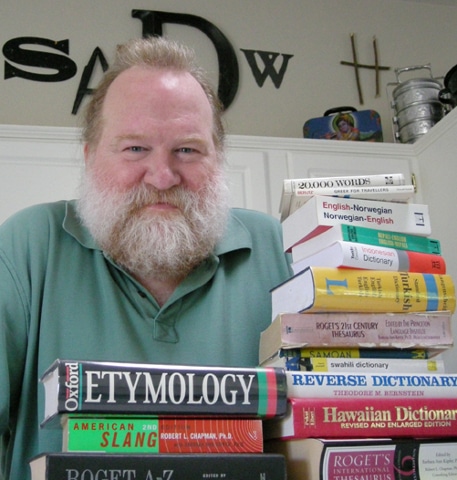I often marvel at the names of companies we routinely do business with today -- Amazon, Yahoo!, Google, Monster. Here are more:
Kodak - Kodak is the completely original creation of George Eastman, the founder and inventor behind the company. He believed that the letter K seemed strong, and liked that no one would mispronounce the name.
Lycos - This one comes from the word Lycosidae, the spider family that contains wolf spiders.
Coca-Cola - The world-famous beverage is named for the coca leaves and kola nuts that are used for flavoring. It's actually a lot more appetizing than Pepsi, which was named for the digestive enzyme pepsin.
QVC - Quality, Value, and Convenience.
Starbucks - Starbucks was named for the character Starbuck in Moby Dick. See, even the name is pretentious and overrated.
Mozilla - This popular web browser was originally designed to replace a program called Mosaic. Mozilla is a combination of Mosaic and Godzilla.
Taco Bell - Taco Bell was named for its founder Glen Bell. Because you know it's good Mexican food when it comes from a guy named Glen.
People actually get paid to help companies come up with names. One such professional namer is Mark Gunnion. He
describes how he does it:
 I retreat to my work lair/library, put on some music – preferably without English lyrics! – and pull out a blank piece ofpaper. Some of my peers use computers every step of the way, but I like to look at the brief, make some new notes, and then just start making a list on a piece of light-green graph paper, with a purple Flair pen.
I retreat to my work lair/library, put on some music – preferably without English lyrics! – and pull out a blank piece ofpaper. Some of my peers use computers every step of the way, but I like to look at the brief, make some new notes, and then just start making a list on a piece of light-green graph paper, with a purple Flair pen.
I look at every line of the brief, review the criteria and objectives for the name, and then I start writing. I write down whatever ideas come bubbling up from the materials the client has provided. I make chains of ideas – sounds, metaphors, and words - just free-form connections between different concepts derived from the client’s briefing and any conversations we’ve had. Before long, the names are just tumbling out of me. I have hundreds of reference books on language (and everything else) that I refer to, books on slang and etymology, Shakespeare, comic books, technical manuals, any kind of word-source where the name ideas might be hiding. When I’m doing the creative part, I don’t interrupt it with the availability checking, I just let the ideas pour out on to the page, where they can connect, and re-combine, and re-arrange themselves in different configurations. At the end of eight hours, there’s usually a hundred or more names scrawled down, created just for that client, ready to organize and check out.
We accept these creations after awhile, even the odd ones. "Names," Salman Rushdie has written, "once they are in common use, quickly become mere sounds, their etymology being buried, like so many of the earth's marvels, beneath the dust of habit."
I retreat to my work lair/library, put on some music – preferably without English lyrics! – and pull out a blank piece ofpaper. Some of my peers use computers every step of the way, but I like to look at the brief, make some new notes, and then just start making a list on a piece of light-green graph paper, with a purple Flair pen.
No comments:
Post a Comment